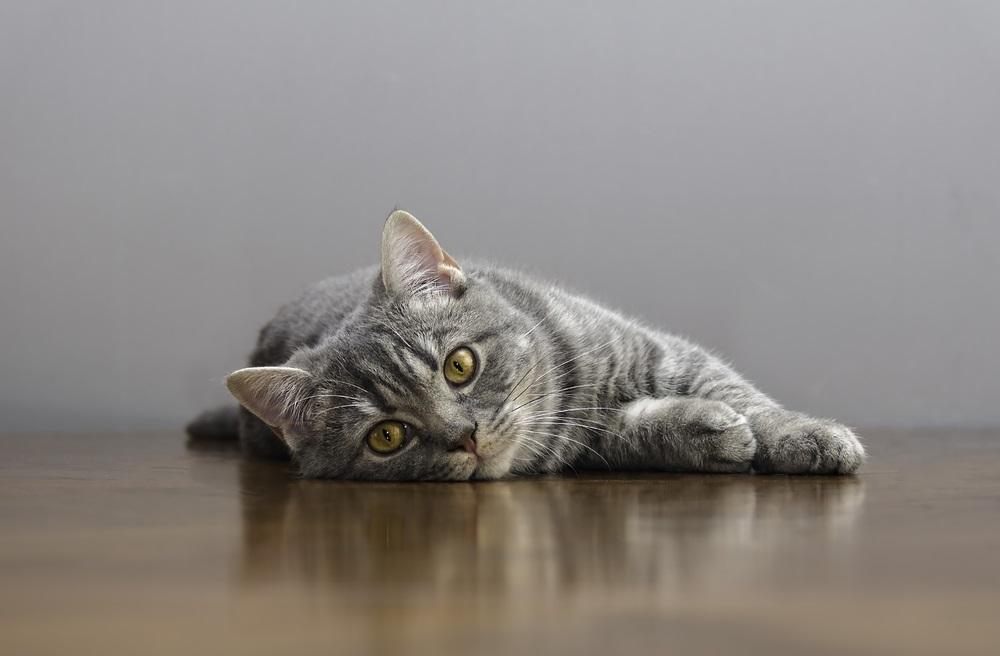
Vomiting in cats is quite common, but you shouldn't always dismiss your kitty's heaving. While your cat often just has a hairball, sometimes vomiting indicates a more serious issue.
From allergies and hairballs to environmental factors, there are many reasons your kitty may be getting sick. It's important as a cat parent that you know the differences between harmless and harmful cat vomiting so you can properly care for your feline friend.
Here are some of the most common reasons kitties throw up, including when you should be concerned about vomiting in cats.
Why Is My Cat Vomiting?
If your cat is throwing up, it’s important to figure out why. Observing your kitty’s behavior can help you determine the reason she is vomiting. Once you know why your cat is getting sick, you’ll know if you need to worry.
Hairballs
Our feline friends are notorious for throwing up hairballs. Cats groom themselves often and swallow large amounts of fur in the process. The fur isn’t digestible, and any that doesn’t pass through your cat’s digestive system forms a hairball. Hairballs are fairly common in cats. However, they aren't always harmless.
If your cat constantly deals with hairballs or displays difficulty when trying to vomit them up, give your vet a call. Heaving without throwing up a hairball coupled with constipation, a lack of energy, a loss of appetite, or feline diarrhea could indicate a life-threatening blockage.
Eating Too Fast
Sometimes, cats eat their meals extremely fast as a competitive instinct. Speed eating causes their stomach wall to expand too quickly. As a result, our feline friends may throw up their food.
In these cases, the pile you find on your floor isn't technically considered vomit — it's actually regurgitated food. Regurgitating food is as common as vomiting in cats is and usually isn't cause for concern.
Special bowls, feeders, and toys can help your cat eat slower. If you get your kitty to take time to savor her meals but regurgitation persists, you should call your vet to make sure there isn't a more serious issue at hand.
Food Allergies
Cats with food allergies typically have itchy, inflamed skin. Other common symptoms are diarrhea, vomiting, and watery eyes in cats. If your kitty throws up shortly after she finishes eating, it could indicate a food allergy. Check her for red, irritated skin and watch to see if she is itching more than usual. Sudden vomiting is a common symptom when an allergy to cat food is present. In these cases, Take your furry friend to the veterinarian for further testing and analysis to uncover the underlying cause.
If you suspect your cat has an allergy to their cat food, your veterinarian will be able to help you pinpoint any potential allergens through an elimination diet. Once you determine the allergens and switch your kitty’s diet accordingly, keep observing her behavior. If she continues to vomit after eating, your cat may have an underlying problem that is making her sick.
A change in diet can also sometimes cause a reaction (change in bowel movements, spitting up), especially if your cat has never had a change in food. If your cat experiences this type of reaction, we recommend a slower transition, and to reach out to your veterinarian for any specific concerns with ingredients.
When Should You Be Concerned?
There are many things that cause vomiting in cats. It may be challenging to know what is an emergency and what isn’t. As a rule of thumb, it’s considered normal for cats to vomit or throw up a hairball once a month.

Many cats vomit because they ate something they shouldn’t have. Bugs, rotten food, and poisonous plants can all make your cat sick. Feed your cat bland food for a few days, and make sure she has fresh water to drink. In most cases, your kitty will be feeling better in two to three days. You can always contact your vet with any concerns about your pet.
If vomiting persists for more than a few days or if your cat displays other signs of distress —like diarrhea, laziness, fever, or blood in her vomit — call your vet right away. Excessive vomiting in cats can quickly lead to dehydration. Chronic vomiting may also indicate a more serious problem such as an infection, an obstruction, or a disease.
Reducing Vomiting in Cats
Vomiting in cats can be nerve-racking, but it doesn’t have to be. Luckily, there are some great ways to prevent your kitty from throwing up. For instance, you can decrease the number of hairballs she gets by brushing her more. Monitor how fast your kitty eats and watch for signs of food allergies.
Check around your home for things that could make your cat sick. Move dangerous plants out of her reach. Throw away any toys with loose or dangling strings that your kitty could swallow. Remove uneaten wet food so that it doesn’t spoil.
Ultimately, the best thing you can do for your feline friend is watch her behaviors closely. Is she showing a new symptom? Unfortunately, cats can't express themselves through words like people can, so if your kitty isn’t feeling well, she'll tell you through her actions.
If you notice your cat's vomiting problem is accompanied by weight loss and other symptoms, it is highly advised to talk with your veterinarian for further observation. More serious issues that may be to blame can include stomach ulcers, pancreatitis, lymphoma, an intestinal obstruction, and a number of other problems in the GI tract.
Here at PrettyLitter, we care about the well-being of your kitty. Our color-changing silica gel cat litter allows you to monitor your cat’s health every time she does her business. We also offer PrettyPlease, our premium cat food to help meet your cat’s dietary needs. Sign up for our cat litter subscription and have your cat litter delivered to your door each month!

Sources:
1. https://resources.bestfriends.org/article/cat-vomiting-types-causes-and-treatments
2. https://www.pdsa.org.uk/taking-care-of-your-pet/pet-health-hub/symptoms/vomiting-in-cats
3. https://www.petmd.com/cat/conditions/digestive/why-your-cat-throwing-and-what-do


Follow Us